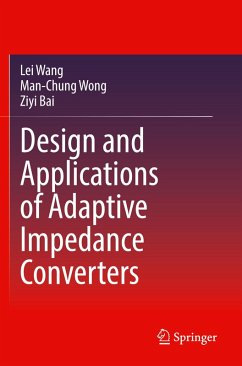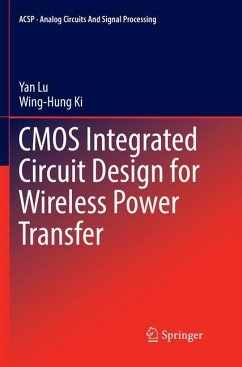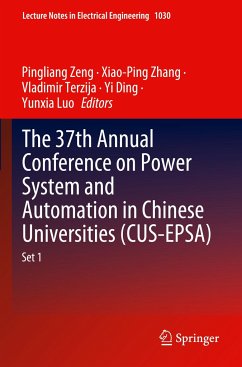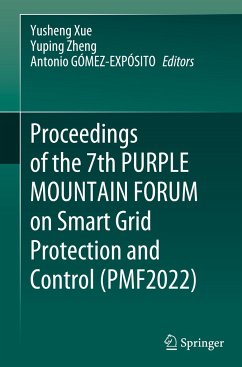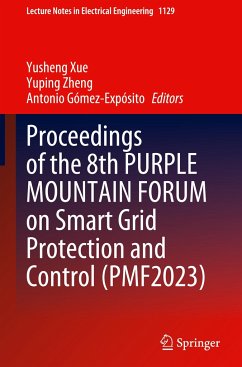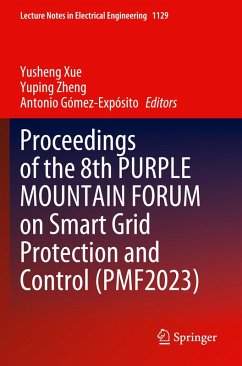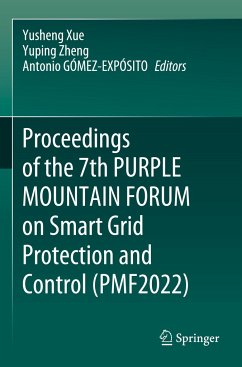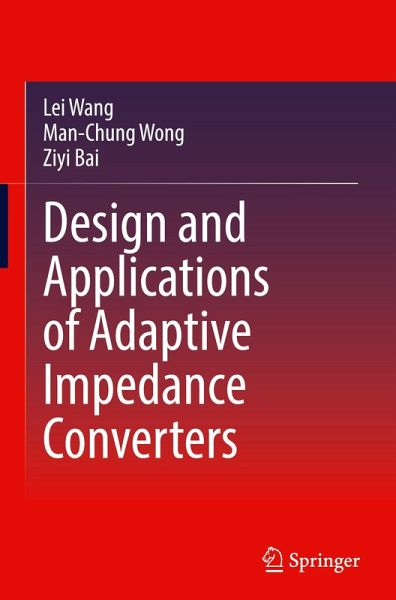
Design and Applications of Adaptive Impedance Converters
Versandkostenfrei!
Versandfertig in 6-10 Tagen
106,99 €
inkl. MwSt.
Weitere Ausgaben:

PAYBACK Punkte
53 °P sammeln!
This book provides the potential advantages of adaptive impedance converters in different applications, such as power quality compensations, AC/DC microgrids, co-phase railway traction supply systems, and underwater electroacoustic transduction systems. In these applications, the adaptive impedance converter models, topologies, and control methods are introduced in this book.Adaptive impedance converters are designed to transform the impedance of an electronic system to optimize its performance. The adaptive impedance converter is typically implemented using passive and active electronic compo...
This book provides the potential advantages of adaptive impedance converters in different applications, such as power quality compensations, AC/DC microgrids, co-phase railway traction supply systems, and underwater electroacoustic transduction systems. In these applications, the adaptive impedance converter models, topologies, and control methods are introduced in this book.
Adaptive impedance converters are designed to transform the impedance of an electronic system to optimize its performance. The adaptive impedance converter is typically implemented using passive and active electronic components to achieve impedance transformation. The main advantage of adaptive impedance converters is their ability to dynamically adjust the impedance to optimize system performance, which can help improve signal quality, reduce interference, and minimize power losses. Whether it is passive based adaptive impedance converters and active adaptive impedance, they both can applied intodifferent applications including distribution system, renewable energy integration, AC/DC microgrids, traction supply system, and power amplifiers to achieve good performances and ensure efficient power transfer. The passive-based adaptive impedance converters can effectively reduce the converter rating and power loss, maintaining a large operational range. The active adaptive impedance can change its impedance varying with frequency, load conditions, or other factors to match the impedance of the source or load, providing efficient power transfer and minimizing signal reflections.
The target audience of this book is the research scholars (including master's and Ph.D. students) in power electronics and electrical engineer.
Adaptive impedance converters are designed to transform the impedance of an electronic system to optimize its performance. The adaptive impedance converter is typically implemented using passive and active electronic components to achieve impedance transformation. The main advantage of adaptive impedance converters is their ability to dynamically adjust the impedance to optimize system performance, which can help improve signal quality, reduce interference, and minimize power losses. Whether it is passive based adaptive impedance converters and active adaptive impedance, they both can applied intodifferent applications including distribution system, renewable energy integration, AC/DC microgrids, traction supply system, and power amplifiers to achieve good performances and ensure efficient power transfer. The passive-based adaptive impedance converters can effectively reduce the converter rating and power loss, maintaining a large operational range. The active adaptive impedance can change its impedance varying with frequency, load conditions, or other factors to match the impedance of the source or load, providing efficient power transfer and minimizing signal reflections.
The target audience of this book is the research scholars (including master's and Ph.D. students) in power electronics and electrical engineer.



